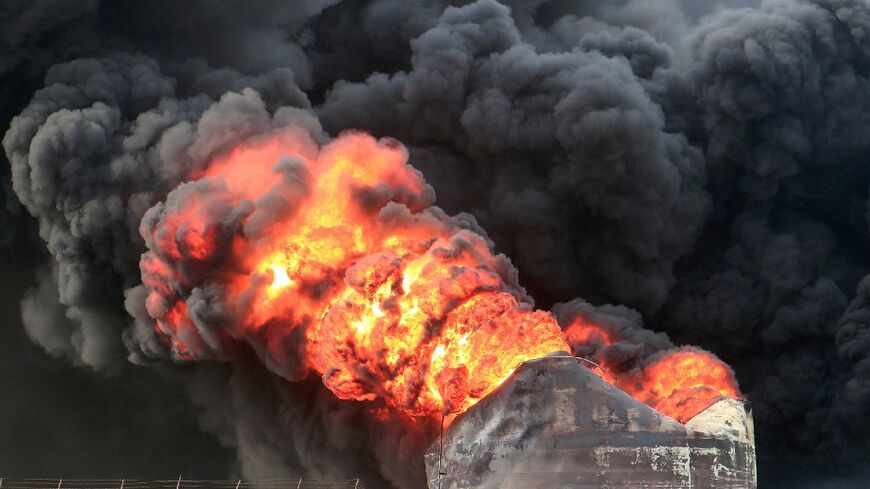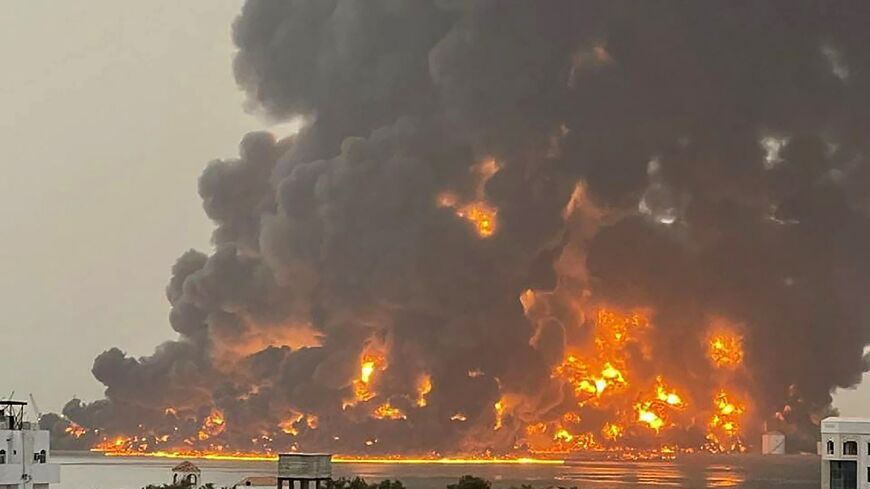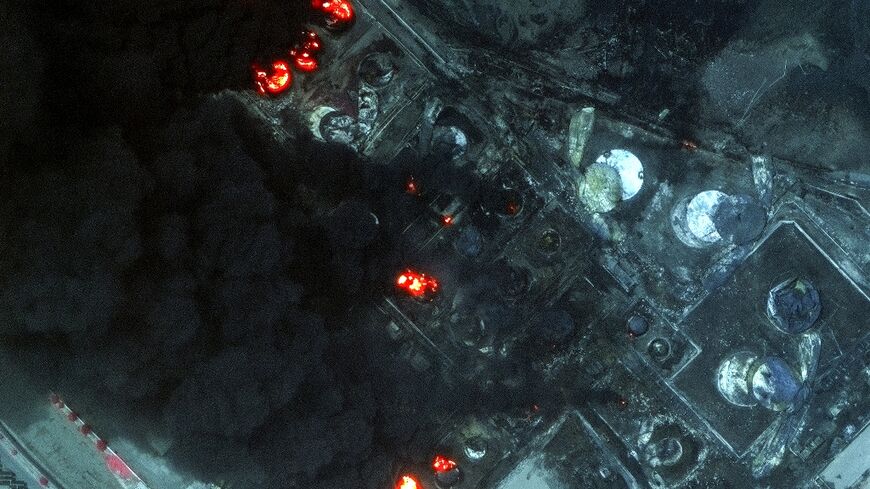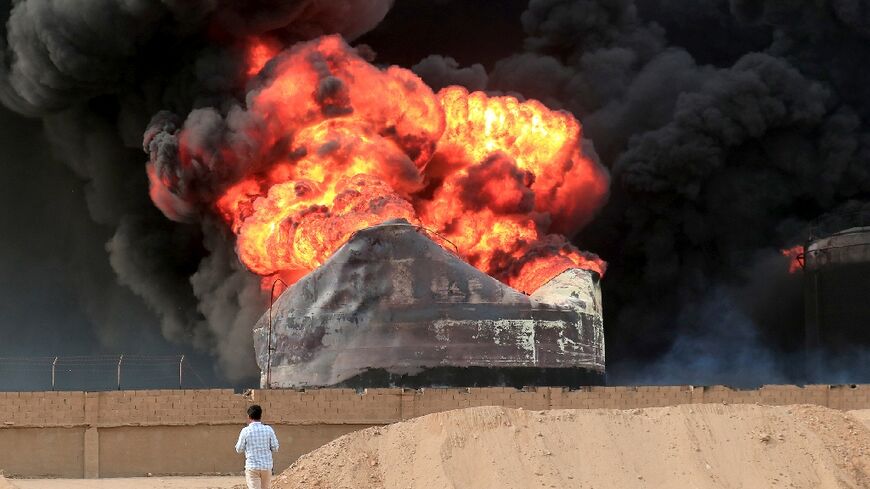Yemen rebels say 6 killed in Israel port strike, vow retaliation

The death toll from an Israeli strike on Yemen's rebel-held port of Hodeida climbed to six, Huthi health authorities said on Sunday, as the rebel group's leader threatened an escalation in attacks.
Saturday's strike on the port, a key entry point for fuel and humanitarian aid to war-ravaged Yemen, is the first claimed by Israel in the Arabian peninsula's poorest country, about 2,000 kilometres (1,300 miles) away.
It killed six people and injured 83, many of them with severe burns, the rebel-run health ministry said in a statement carried by Huthi media. Three people remain missing, it said.
Israel said it carried out the strike in response to a drone attack by the Huthis on Tel Aviv which killed one person on Friday.
On Sunday, Huthi chief Abdul Malik al-Huthi said the strikes would lead to "further escalation and more attacks targeting Israel".
Friday's Huthi drone strike on Tel Aviv has changed the rules of engagement and opened "a new phase" in operations against Israel, he added.
Huthi military spokesman Yahya Saree said the rebels' "response to the Israeli aggression against our country is inevitably coming and will be huge".
On Sunday, the Israeli military said it intercepted a missile fired from Yemen towards the Red Sea resort town of Eilat, noting that "the projectile did not cross into Israeli territory".
Saree said the rebels had fired ballistic missiles towards Eilat, the latest in a string of Huthi attempts to hit the port city.
Saturday's strikes destroyed five cranes and reduced the port's fuel storage capacity from 150,000 tonnes to 50,000, said the US-based Navanti Group, citing merchants.
In Hodeida, firefighters struggled on Sunday to contain the blaze as thick plumes of smoke hung above the city, an AFP correspondent reported.
Fuel storage tanks and a power plant at the port were still ablaze amid "slow" firefighting efforts, said a port employee.
- 'Dire humanitarian effects' -
The employee, who spoke on condition of anonymity for security concerns, said it could take days to contain the fire, a view echoed by Yemen experts.
"There is concern that the poorly equipped firefighters may not be able to contain the spreading fire, which could continue for days," said Mohammed Albasha, senior Middle East analyst for Navanti Group, warning that it could reach food storage facilities at the harbour.
Hodeida port is a vital entry point for fuel imports and international aid for rebel-held areas of Yemen.
It has remained largely untouched through the decade-long war between the Huthis and the internationally recognised government propped up by neighbouring Saudi Arabia.
Despite Huthi assurances of sufficient fuel stocks, Saturday's strike triggered fears of worsening shortages.
The attack is "going to have dire humanitarian effects on the millions of ordinary Yemenis living in Huthi-held Yemen", Yemen expert Nicholas Brumfield said in a social media post.
It will drive up prices of fuel but also any goods carried by truck, the analyst said.
Yemen's internationally-recognised government condemned the strike and held Israel responsible for a worsening humanitarian crisis.
A statement carried by the official Saba news agency said the Yemeni government holds "the Zionist entity fully responsible for any repercussions resulting from its airstrikes, including the deepening of a humanitarian crises".





